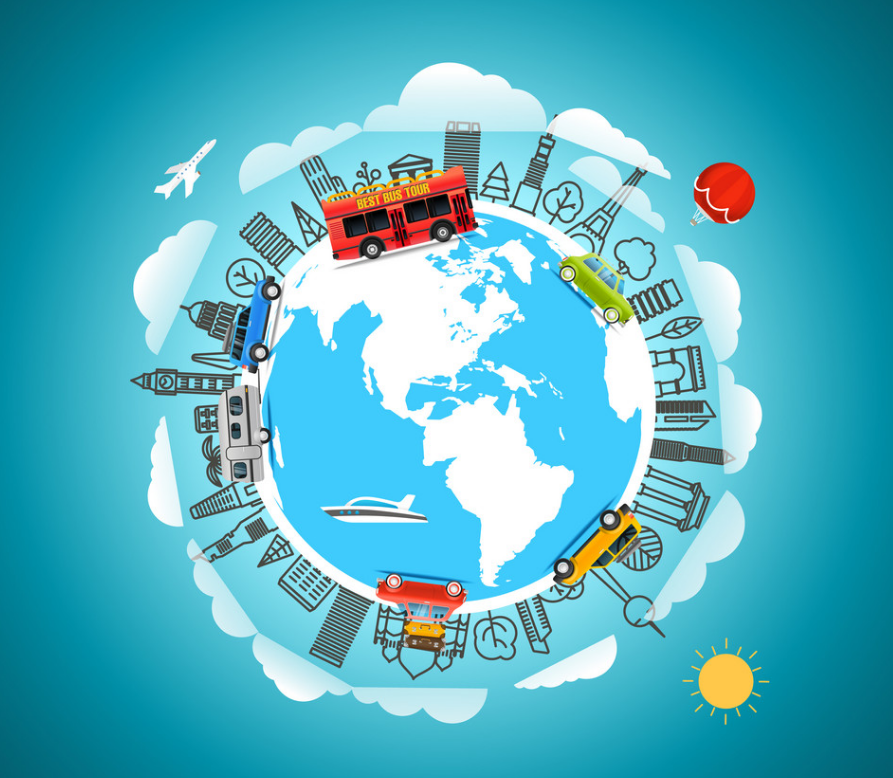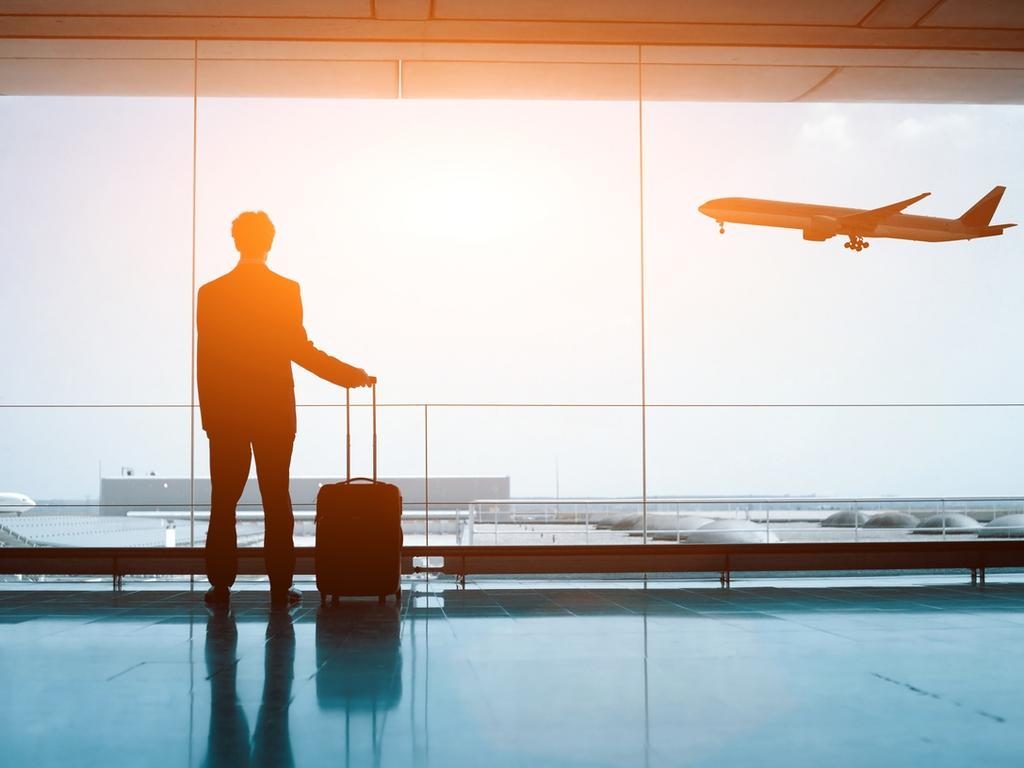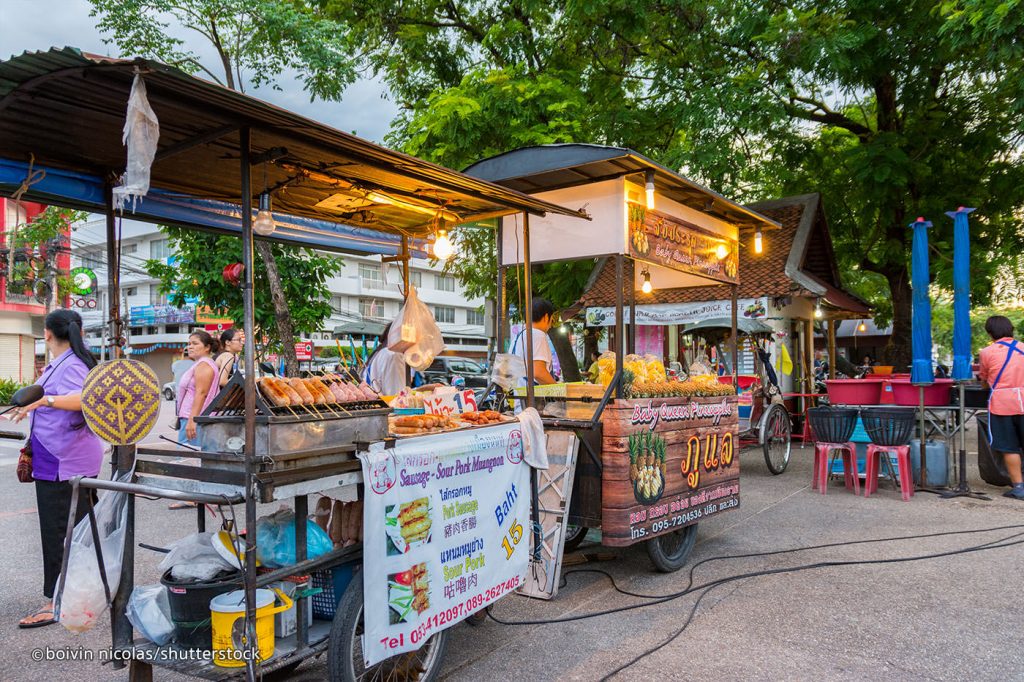
Nowadays, companies open up to the idea of remote work. It creates a travel opportunity for many who would like to visit foreign countries while making ends meet. Due to economic disparities between first-world and developing countries, it’s even possible to save money this way. You can sip cocktails at the tropical beach of your dreams while making the same as you would back home.
Of course, it still depends on your needs, what you’re prepared to live without, and the willingness to overcome the obstacles you might run into along the way. The language barrier would be an example of this. In other words, there is no one-size-fits-all answer because it depends on many variables.
To help you plan out the perfect budget, let’s take a look at what goes into planning your trip around the world and what questions you should ask yourself before embarking it.
Table of Contents
What Part of the World Would You Like to Visit?

img source: apnarm.net.au
You’d be surprised to find out how much cheaper life can be on the other side of the planet. But that doesn’t mean you have to take it to the very extremes and visit the places that bear a seal of poverty (think rural regions of Africa).
Some Southeast Asian countries like Thailand are surprisingly well developed, not to mention safe. And you can live the high life for a fraction of what it would cost you in the US.
Most of Europe is also developed quite well. But you can expect to pay a premium if you plan to spend most of your time traversing tourist hotspots like Paris. Opt-in for less crowded destinations in Central or Eastern Europe. You can expect low prices and just as spectacular sights as you’d get in the West. Also, don’t travel only to the capital cities as those are always more expensive.
What are Your Expected Standards of Living?

img source: srilankaeconomytours.com
Since we’re talking about a typical digital nomad’s needs, having a steady and reliable connection should top your list of priorities. Having access to competitive healthcare is up there as well, right along with general safety.
But don’t make the mistake of assuming that low-cost regions automatically mean petty theft and violence. For instance, many Australians often feel safer in, say, Sri Lanka or Vietnam than their country of origin.
In general, pretty much every country offers high-end condos and hotels, but there are cheaper alternatives. It all boils down to your expected standards of living.
What Items are Portable Enough to Take With You?
Your trusty laptop will accompany you no matter where you go. But since you can fit it in a backpack, it won’t be a burden to carry around. Heavy instruments or gear, however, could be a problem.
So with that in mind, calculate the costs of what you’ll have to buy or rent in another country. If you need a large HD TV for work-related purposes, many mid to high-end condos and hotels will provide you one at no extra charge. So if you make the necessary inquiries in advance, it could help you avoid several costs down the line.
How Much Do You Spend on Food and Entertainment?

img source: asiawebdirect.com
If you can’t spend a week without hitting the bar, that’s another set of costs you should factor into the equation. Then, there are cinema, museum entry, concert, and all the other tickets. If you do a lot of shopping, there’s that as well.
Since you’ll have to get from point A to point B, taxi and commuting fees are another consideration. But the most important one is the food. You can save a lot of money if you stick to street food stalls. But make sure it’s safe – food poisoning is never worth the money saved. So before choosing where to eat, read more about how to prevent food poisoning.
Are you single? It means you’re free to explore the local dating scene and meet up with wonderful guys and gals from every corner of the world. But unless you and your potential love interest are okay with grabbing a coffee and calling it a date, be prepared to spend some money on fancy restaurants and other forms of entertainment.
Quick Tips on How to Save Time and Money When Traveling The World

img source: vectorstock.com
- Street food stalls are your go-to money saver. You can also rely on user review platforms like Tripadvisor to locate all the cheap places to eat.
- Are you okay with using affordable means of commuting? Then learn to hide your IP (more information here) to find better flight deals, just to name one example. This keeps your sensitive and work-related data safe (which is a must when working online) and helps you bypass double-pricing issues that foreigners often have to deal with.
- Book accommodation in advance. It will help you lock in the best deal. In some cases, you can save as much as half the costs of your stay.
- Use trains and buses instead of taxis whenever possible. If you travel to Europe, you can even get pretty decent railway tickets that cover multiple countries at once.
- Check accommodation prices online. Always check at least a couple before booking to get a feel for the costs. Don’t underestimate the sites like booking.com and Airbnb. If you visit someplace only for a few days, Couchsurfing may come in handy too.
- When packing, the bulkier items should go into the suitcase first. Then, you can fill the gaps with smaller and lighter items.
Conclusion
To sum it up and answer the initial question, traveling the world can be done backpacker-style or while indulging in luxury. In Southeast Asia, for example, it’s possible to get by on $600 a month if your needs are minimal. In Europe, the tourist areas can mean up to ten times more in monthly costs. Of course, everything in between is possible too. So once you layout your needs and familiarize yourself with the countries you’ll be visiting, you can determine the expected costs with a fair amount of accuracy.







